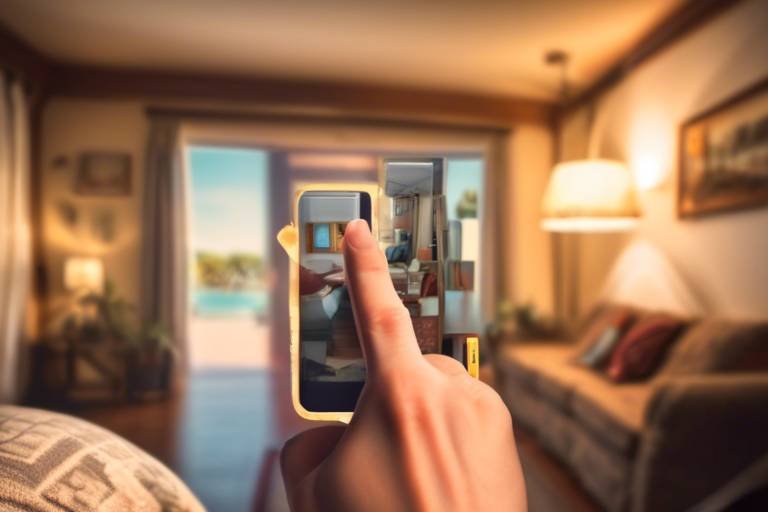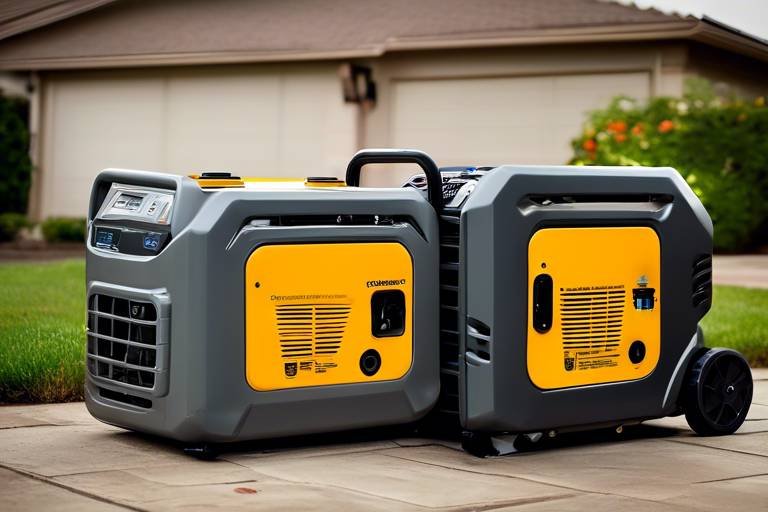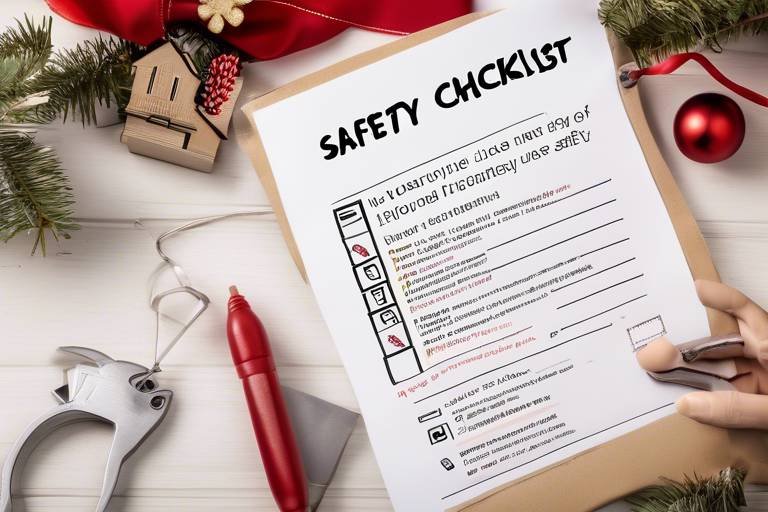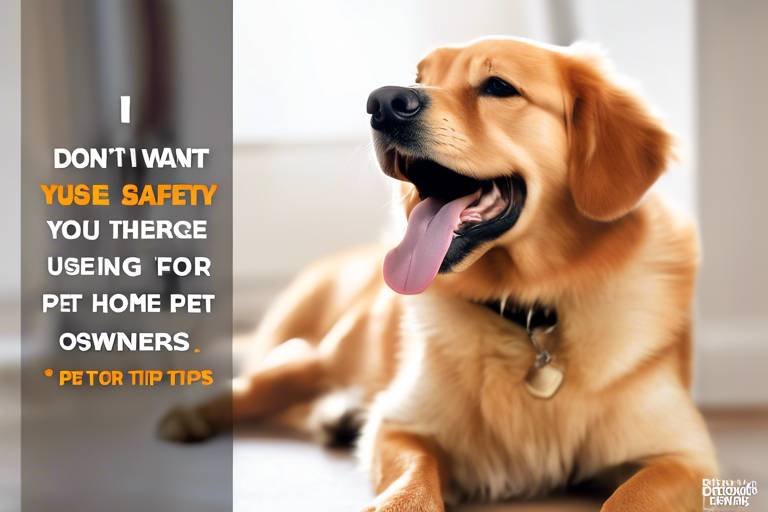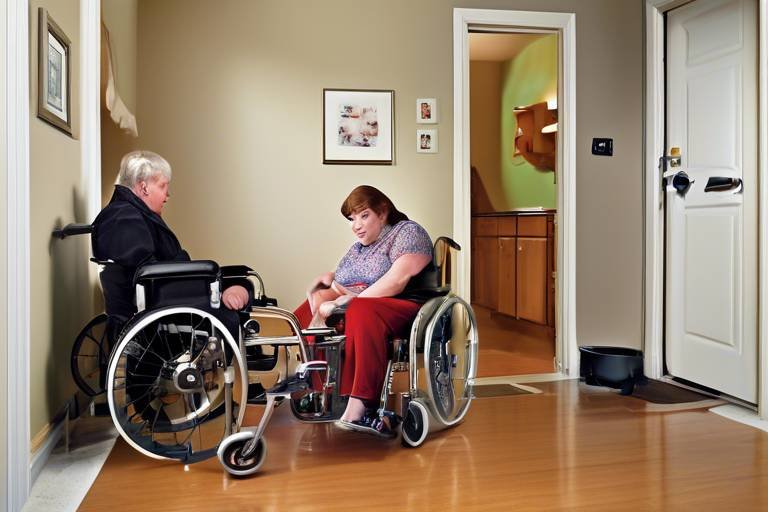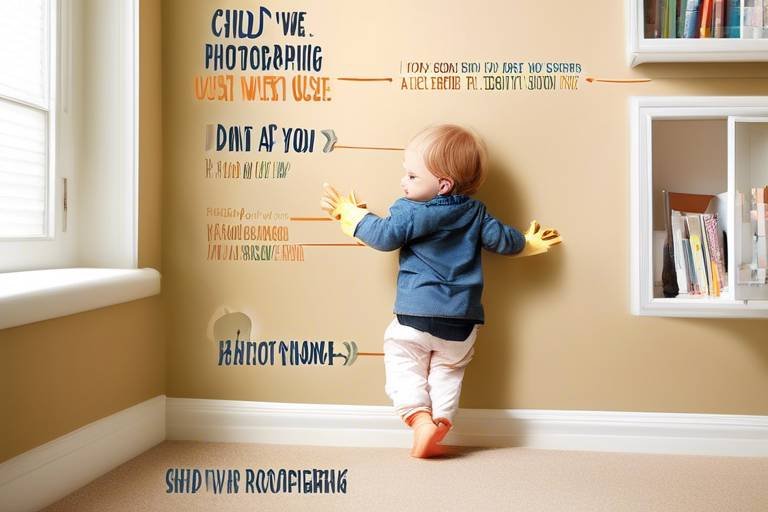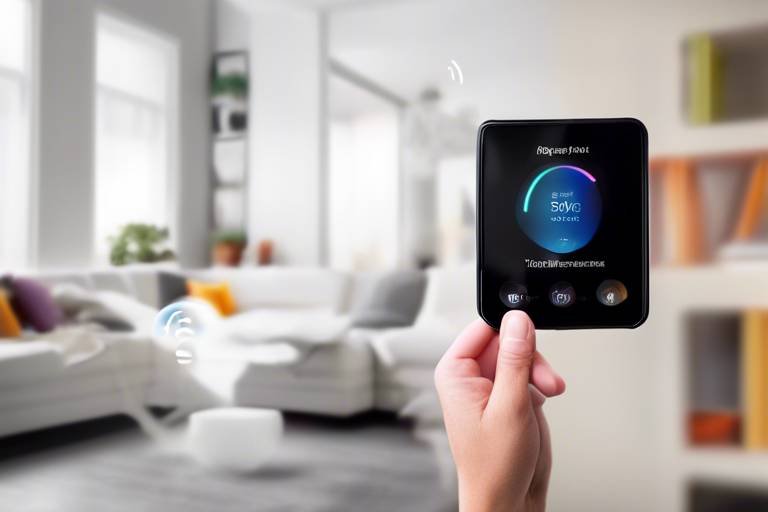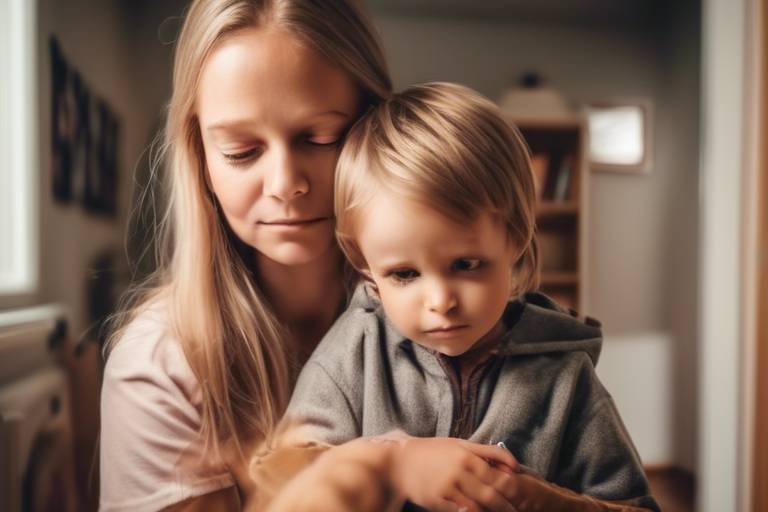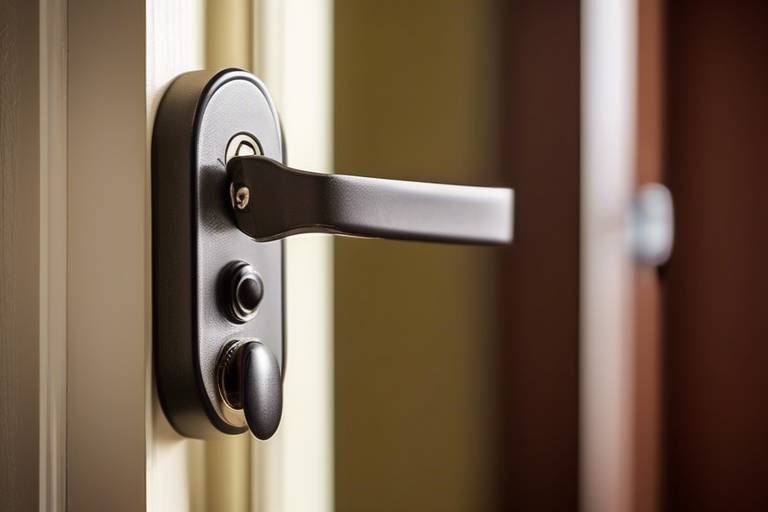Home Safety Guide for a Worry-Free Vacation
Are you ready to pack your bags and head off on that much-needed vacation? Before you do, let’s take a moment to talk about something that's just as important as your travel itinerary: securing your home. After all, the last thing you want while lounging on a beach or exploring a new city is to worry about what’s happening back at home. This guide provides essential tips and strategies to ensure your home remains secure while you're away, allowing you to enjoy your vacation without any worries about your property.
Imagine this: you're sipping a cocktail, the sun is shining, and you feel completely at ease. But then, a nagging thought creeps in—did you lock the back door? What about the windows? Did you remember to turn off the lights? These concerns can turn your dream getaway into a stress-filled experience. By taking proactive measures before your trip, you can significantly enhance your home's security and ensure that everything is in order and protected from potential threats while you are away.
So, what can you do to make sure your home is as secure as Fort Knox? First off, it’s all about the preparation. Just like you wouldn't leave for a trip without packing your essentials, you shouldn’t leave your home unprotected. This guide will walk you through the steps you need to take to secure your home, from locking up entry points to utilizing modern technology and informing trusted friends or neighbors. By the time you finish reading, you’ll be equipped with all the knowledge you need to safeguard your home and enjoy your vacation worry-free!
Preparation is key to a secure home while you’re away. Before you even think about leaving, start by making a checklist of everything you need to do. This checklist should include tasks like checking locks, securing windows, and perhaps even setting up some smart home devices. It’s like doing a final walk-through before a show—everything needs to be in its right place. Here’s a simple checklist to consider:
- Check all doors and windows to ensure they are locked.
- Unplug any unnecessary appliances.
- Set timers for lights to give the appearance of someone being home.
- Inform a trusted neighbor or friend about your absence.
By following these steps, you can create a solid foundation for a worry-free vacation. Think of it as putting on your seatbelt before driving—it's a simple action that can prevent a lot of headaches later on!
When it comes to home security, ensuring all entry points, such as doors and windows, are properly secured is crucial. Think of your home as a fortress; if the gates are wide open, you’re inviting trouble. This section will cover various methods to reinforce these areas and deter potential intruders.
Investing in high-quality locks can greatly improve your home’s security. Just like you wouldn’t trust a flimsy suitcase for a long journey, don’t rely on subpar locks to protect your home. Consider upgrading to deadbolts or smart locks, which are designed to withstand forced entry. Here’s a quick rundown of the types of locks you might consider:
| Type of Lock | Security Level | Notes |
|---|---|---|
| Standard Locks | Low | Commonly found, easy to pick. |
| Deadbolts | Medium | More secure than standard locks; requires a key. |
| Smart Locks | High | Offers remote access and monitoring features. |
Understanding the differences between these lock types can help you make informed decisions about securing your home effectively.
Smart locks are the future of home security, offering convenience and enhanced features that traditional locks simply can’t match. Imagine being able to lock or unlock your door with just a few taps on your smartphone, or even granting access to a friend or neighbor while you’re miles away. These modern solutions can provide peace of mind while you’re on vacation, allowing you to focus on making memories instead of worrying about your home.
When it comes to locks, it’s essential to understand the differences between deadbolts and standard locks. Deadbolts provide a higher level of security due to their design, which requires a key to unlock. On the other hand, standard locks can often be picked or bumped, making them less secure. Think of it as the difference between a sturdy vault and a flimsy garden shed—one keeps valuables safe, while the other leaves them exposed.
Windows are often vulnerable entry points that can be easily overlooked. To reinforce your windows, consider adding window locks, security film, or even window bars. These solutions act as a deterrent, making it less likely for intruders to target your home. Remember, the goal is to make your home look less appealing to potential burglars. The more secure you make it, the less likely they are to take the risk!
Modern technology offers numerous tools to enhance home security. With smart home devices, you can monitor and protect your property while you're away. Imagine being able to check in on your home from anywhere in the world, thanks to your smartphone. This section highlights the benefits of using these technologies, making your life easier and your home safer.
Installing security cameras can provide real-time monitoring of your home. With options ranging from indoor cameras to outdoor floodlight cameras, you can choose what works best for your property. These cameras not only deter crime but also give you peace of mind knowing you can keep an eye on things, even when you’re not there. Plus, many of them come with features like motion detection and night vision, ensuring you’re covered 24/7.
An effective alarm system can alert you and authorities in case of a break-in. From simple door sensors to comprehensive home security systems, there are various alarm options available. Think of it as your home’s personal bodyguard, always on the lookout for trouble. Investing in a good alarm system can be a game-changer for your home security, making it less likely for intruders to target your property.
Keeping your neighbors and friends informed about your vacation plans can provide an extra layer of security. A watchful neighbor can be your best ally when it comes to home safety. Let them know when you’ll be away, and they can help keep an eye on your property. This section discusses how to leverage your community for safety and peace of mind.
Arranging for a trusted friend or neighbor to check on your home can deter burglars. Having someone physically present in your home can make a world of difference. Not only does it provide an extra set of eyes, but it also gives you the assurance that your home is being looked after. Plus, it’s a great way to maintain friendships—who wouldn’t want to spend time in a cozy home while their friends are off on an adventure?
Participating in or establishing a neighborhood watch can enhance community security. These programs work by fostering communication and cooperation among neighbors. When everyone is looking out for each other, it creates a safer environment for all. Think of it as a community safety net—together, you can prevent crime and keep your neighborhood secure.
Conducting a final check before leaving can help ensure everything is secure. Before you head out for your vacation, take a moment to run through a checklist of tasks. This final walk-through can save you from potential headaches later. Here’s what you should include in your last-minute checks:
- Ensure all doors and windows are locked.
- Unplug unnecessary appliances to prevent fire hazards.
- Set timers for lights to give the appearance of occupancy.
- Double-check that you’ve informed trusted friends or neighbors.
By taking these simple steps, you can leave your home with confidence, knowing you've done everything you can to protect it.
Having a list of emergency contacts readily available can be vital in case of unforeseen issues. Make sure to include numbers for local authorities, trusted friends, and family members. This way, if something unexpected happens, you’ll have the right people to call. It’s like having a safety net—just in case!
Turning off unnecessary appliances can prevent potential hazards. Before you leave, take a moment to unplug items like toasters, coffee makers, and other non-essential electronics. This not only saves energy but also reduces the risk of electrical fires. Think of it as a way to give your home a little vacation too—less clutter, less risk!
Q: How can I make my home appear occupied while I'm away?
A: Use timers for lights, ask a neighbor to park their car in your driveway, and arrange for someone to collect your mail.
Q: Should I inform my alarm company that I’ll be away?
A: Yes, letting your alarm company know can ensure they are prepared to respond quickly in case of an alert.
Q: What should I do if I suspect someone has entered my home while I was away?
A: Contact local authorities immediately and avoid entering the home until they arrive.

Preparing Your Home Before Leaving
When it comes to heading off on a vacation, the last thing you want is to be haunted by worries about your home. You want to kick back, relax, and soak up the sun without the nagging thought of whether you left the door unlocked or the windows ajar. So, how do you ensure your home is as safe as a fortress while you're away? Preparation is key! Taking proactive measures before your trip can significantly enhance your home's security, ensuring that everything is in order and protected from potential threats.
Start by conducting a thorough walkthrough of your home. Check every room, closet, and nook to ensure that all entry points are secure. This includes not only doors and windows but also garage doors and basement entrances. You might think those little side windows don’t matter much, but they can be a burglar's best friend. Trust me, a little attention to detail can go a long way!
Next, consider your valuables. Are they tucked away in a safe place? You might want to invest in a small safe for important documents and jewelry. If you have items that are particularly valuable or sentimental, keeping them out of sight is crucial. You don’t want to advertise your treasures to anyone who might be lurking around. Remember, out of sight, out of mind!
Another essential step is to stop your mail and newspaper deliveries. An overflowing mailbox or a pile of newspapers can be a clear sign to potential intruders that you’re not home. Consider asking a trusted neighbor to collect your mail or using a hold service from your local post office. This small act can make a big difference in keeping your home looking lived-in while you're away.
It’s also a good idea to set up timers for your lights. This way, you can create the illusion that someone is home, even when you’re miles away. You can find timers that allow you to program various lights to turn on and off at different times, simulating your usual routine. This simple trick can be a game-changer in deterring would-be burglars.
Lastly, don’t forget to check your home insurance policy. Make sure you’re up-to-date on coverage and know what to do in case of an emergency. Having a solid plan in place can give you peace of mind as you travel. After all, being informed is part of being prepared!
In summary, preparing your home before leaving for vacation is not just about locking the doors and hoping for the best. It’s about taking a comprehensive approach to security. By following these steps, you can enjoy your time away knowing that your home is well-protected. So, pack your bags, and get ready for an adventure, knowing you’ve done everything possible to secure your sanctuary!
Q: What should I do with my plants while I'm away?
A: If you have plants that require regular watering, consider asking a neighbor or friend to help out. Alternatively, you can group them together and place them in a bathtub filled with water to keep them hydrated for a longer period.
Q: Is it necessary to inform my neighbors about my vacation?
A: Yes! Informing trusted neighbors can help them keep an eye on your property and report any suspicious activity. It’s a great way to leverage your community for safety.
Q: Should I leave a spare key outside?
A: It's generally not advisable to leave a spare key outside, as this can be an easy target for burglars. Instead, consider giving a trusted friend or neighbor a key for emergencies.
Q: How can I ensure my home looks occupied?
A: Use timers for your lights, ask someone to park their car in your driveway, and have a neighbor collect your mail and newspapers to maintain the appearance that someone is home.
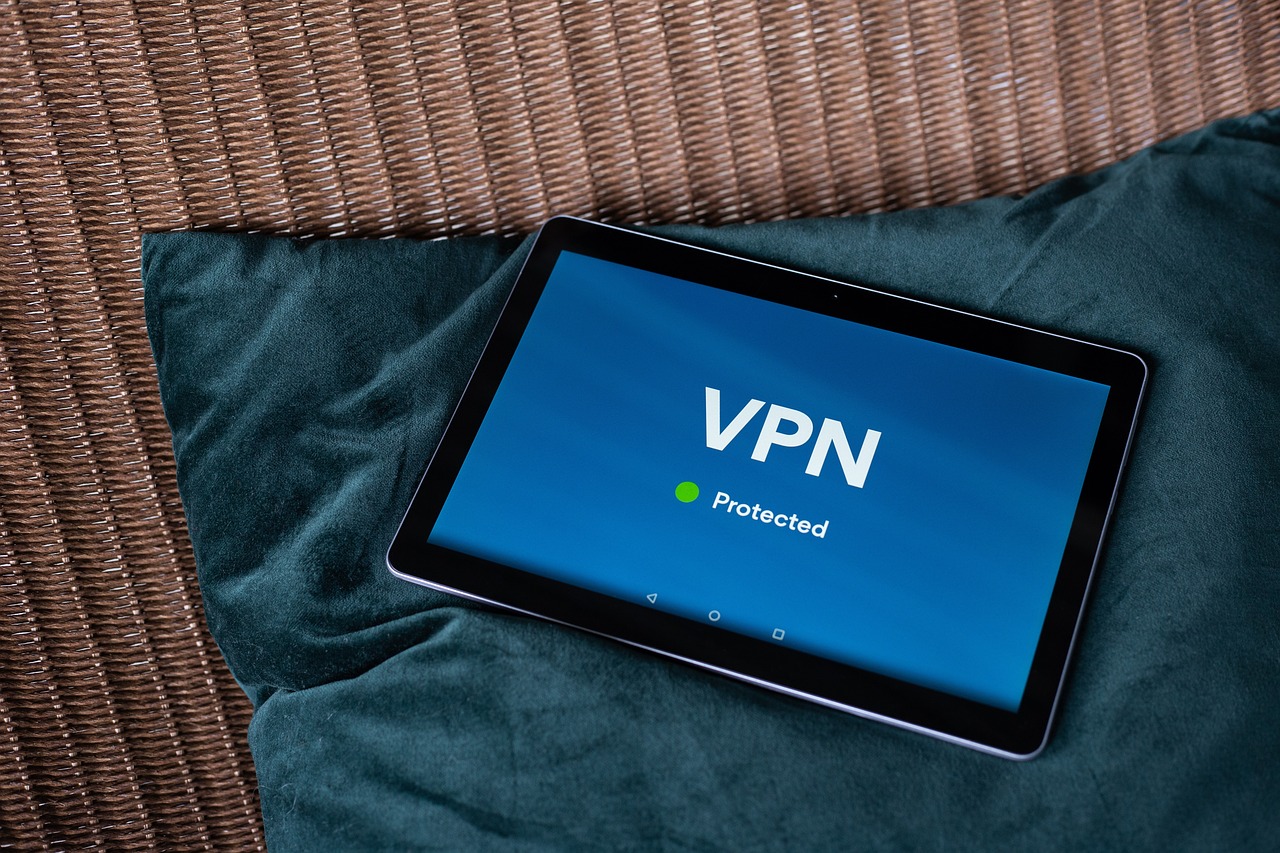
Securing Entry Points
When it comes to home security, one of the most critical areas to focus on is the entry points. These are the doors and windows that act as gateways to your sanctuary. If they are not adequately secured, they can become an open invitation for unwanted guests. Think of your home as a fortress; if the gates are weak, the castle is vulnerable. By taking the time to reinforce these areas, you can significantly reduce the risk of a break-in and enjoy your vacation without a care in the world.
Start by examining your doors. Are they solid and sturdy? If you have hollow-core doors, it might be time to consider an upgrade. A solid wood or metal door provides a much stronger barrier against intruders. Additionally, the quality of your door hardware matters. Cheap locks and hinges can easily be compromised. Investing in high-quality, durable locks will give you peace of mind. Remember, a strong door is only as secure as its locking mechanism.
Now, let’s talk about windows. Many homeowners underestimate the importance of window security. Did you know that over 30% of burglars enter through unlocked windows? To prevent this, ensure that all windows are locked before you leave. For added security, consider installing window locks or security bars. These can act as a deterrent, making it much more challenging for an intruder to gain access. Additionally, window film can provide an extra layer of protection; it makes glass harder to break and can delay entry.
Another effective method to secure your entry points is by using motion-sensor lights. Placing these lights around your entryways can illuminate any suspicious activity, making it less likely for a burglar to approach your home. Imagine a dark, quiet house suddenly flooded with light—it’s enough to send any would-be intruder running for the hills!
Here’s a quick table summarizing some effective methods to secure your entry points:
| Entry Point | Security Measure | Benefits |
|---|---|---|
| Doors | High-quality locks, deadbolts | Increased resistance to forced entry |
| Windows | Window locks, security bars, window film | Enhanced protection against break-ins |
| Exterior | Motion-sensor lights | Deterrent for intruders, improved visibility |
Finally, don’t forget to consider the visibility of your entry points. Overgrown bushes or trees can provide cover for potential burglars. Keep your landscaping well-maintained to eliminate hiding spots. A clear view of your doors and windows not only enhances security but also gives you peace of mind. Remember, a little effort in securing your entry points can go a long way in protecting your home.
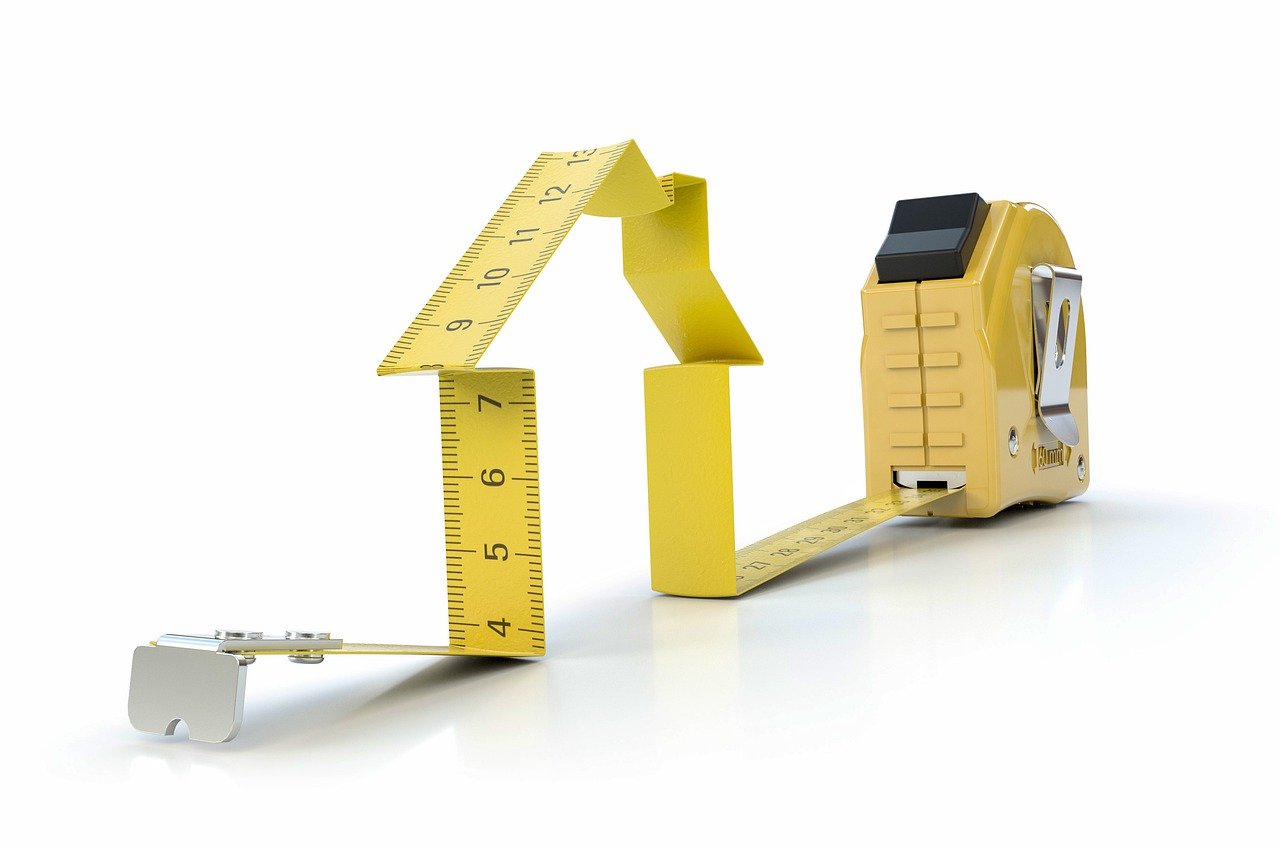
Upgrading Locks
When it comes to securing your home, one of the most effective steps you can take is upgrading your locks. Think of your locks as the first line of defense against potential intruders. Investing in high-quality locks not only fortifies your home but also gives you peace of mind while you're away on vacation. But what kind of locks should you consider? Let's dive into the various options available and their effectiveness in keeping your home safe.
First off, let's talk about the different types of locks you might encounter. Traditional locks, while still common, often fall short in terms of security against modern burglary techniques. On the other hand, deadbolts provide a much stronger barrier. These locks are designed to resist forced entry, making them a popular choice among homeowners. If you want to get a bit more technical, here’s a quick comparison:
| Type of Lock | Security Level | Vulnerability |
|---|---|---|
| Standard Lock | Low | Can be easily picked or bumped |
| Deadbolt | High | Resistant to forced entry |
| Smart Lock | Varies | Depends on technology used |
Now, let's not forget about the modern marvels of technology: smart locks. These locks not only offer enhanced security features but also provide unparalleled convenience. Imagine being able to lock and unlock your door from anywhere using your smartphone. Smart locks can send you notifications when someone enters your home, making it easier to keep track of who is coming and going. However, it's essential to choose a reputable brand, as the security of these devices can vary significantly.
So, which option is right for you? If you’re looking for maximum security, a deadbolt is a must. But if you want the convenience of keyless entry and remote access, a smart lock might be the way to go. It's all about balancing your security needs with your lifestyle. Remember, your home is your sanctuary, and investing in quality locks is a small price to pay for peace of mind.
In summary, upgrading your locks is a critical step in enhancing your home’s security. Whether you opt for traditional deadbolts or cutting-edge smart locks, the important thing is to ensure that your entry points are fortified. After all, a secure home allows you to enjoy your vacation without a worry in the world!
- What is the best type of lock for home security? Deadbolts are generally considered the best for home security due to their resistance to forced entry.
- Are smart locks secure? Yes, but their security depends on the brand and technology used. Always choose reputable brands and keep the firmware updated.
- Can I install locks myself? While some locks can be installed by DIY enthusiasts, it’s often best to hire a professional to ensure proper installation.
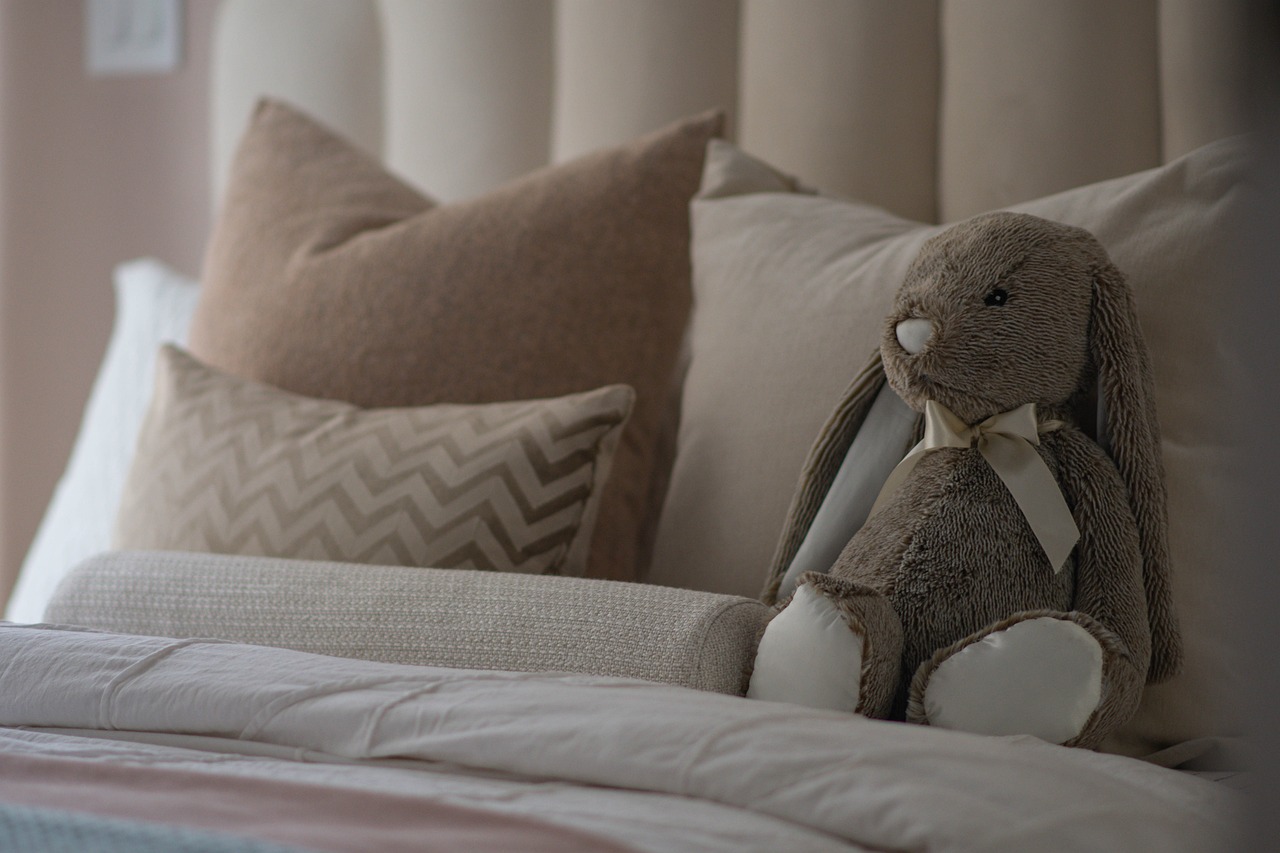
Smart Locks
When it comes to securing your home, are a game changer. Imagine being able to lock and unlock your door from anywhere in the world, all with just a few taps on your smartphone. Sounds futuristic, right? But this technology is very much a reality today! Smart locks offer a level of convenience and security that traditional locks simply cannot match. They come equipped with features like remote access, temporary access codes, and real-time notifications, allowing you to keep tabs on who enters and exits your home.
One of the most appealing aspects of smart locks is their ability to integrate with other smart home devices. For example, if you have a smart security camera, you can receive alerts on your phone when someone approaches your front door, and then unlock the door remotely if it’s a trusted friend or family member. This interconnectedness not only enhances your security but also adds a layer of convenience to your daily life.
Moreover, many smart locks offer keyless entry, which means you can say goodbye to fumbling for your keys in your bag or pocket. Instead, you can access your home using a smartphone app, a keypad, or even biometrics like fingerprints. This feature is particularly beneficial for families with children or elderly members who might struggle with traditional keys. Not to mention, if you ever misplace your keys, you won’t have to worry about being locked out!
However, like any technology, smart locks come with their own set of considerations. For instance, it’s essential to choose a reputable brand that prioritizes security. Look for locks that offer end-to-end encryption and have a robust customer service support system in case you encounter any issues. Additionally, ensure that your home’s Wi-Fi network is secure to prevent unauthorized access. Remember, the goal is to enhance your home security, not compromise it!
In terms of installation, smart locks are generally easy to set up, often requiring only a screwdriver. Many models are designed to fit over your existing deadbolt, making it a straightforward upgrade. If you’re not particularly handy, you can always hire a professional to ensure everything is installed correctly.
In summary, smart locks are an excellent investment for anyone looking to bolster their home security while enjoying the convenience of modern technology. With features that allow for remote access and integration with other smart devices, they provide peace of mind when you’re away on vacation or simply at work. So, if you want to take your home security to the next level, consider making the switch to a smart lock!
- Are smart locks safe? Yes, when installed correctly and chosen from reputable brands, smart locks can provide a high level of security.
- Can smart locks be hacked? While no system is entirely foolproof, choosing a lock with strong encryption and keeping your Wi-Fi secure can minimize risks.
- Do I need Wi-Fi for a smart lock to work? Most smart locks require a Wi-Fi connection for remote access, but some can function offline with a keypad.
- How long do the batteries last in smart locks? Battery life can vary, but most smart locks last between 6 months to a year before needing a replacement.

Deadbolts vs. Standard Locks
When it comes to securing your home, one of the most critical decisions you’ll make is choosing the right type of lock for your doors. The two most common options are deadbolts and standard locks. Understanding the differences between these two can significantly impact your home’s security. Think of your front door as the gateway to your sanctuary; you wouldn’t want just any lock guarding it, right?
Standard locks, often referred to as spring bolt locks, are the most basic type of locking mechanism. They work by using a spring-loaded bolt that retracts when you turn the knob or lever. While they are convenient and easy to use, they do have some vulnerabilities. For instance, a standard lock can be easily manipulated with simple tools like a credit card or a shim, making it less secure against break-ins. In fact, many burglars know that these locks can be bypassed quickly, which is why they are often the first choice for those looking to enter a home unlawfully.
On the other hand, deadbolts offer a higher level of security. They come in two main types: single and double cylinder. A single cylinder deadbolt has a keyhole on the outside and a thumb turn on the inside, while a double cylinder requires a key for both sides. This added layer of security makes deadbolts far more resistant to forced entry. To illustrate the effectiveness of deadbolts, consider this: a standard lock can be compromised in seconds, while a deadbolt can withstand significant force, making it a much tougher nut to crack. Here’s a quick comparison:
| Feature | Standard Locks | Deadbolts |
|---|---|---|
| Security Level | Low | High |
| Ease of Manipulation | High (can be picked or shimmed) | Low (resistant to manipulation) |
| Installation Complexity | Easy | Moderate (may require professional help) |
| Cost | Low | Moderate to High |
While the upfront cost of deadbolts may be higher than standard locks, think of it as an investment in your peace of mind. The extra security they provide can deter potential intruders, making your home less of a target. Additionally, many insurance companies offer discounts for homes equipped with deadbolts, which can help offset the initial expense.
In conclusion, if you’re serious about protecting your home, opting for deadbolts over standard locks is a no-brainer. They provide a more robust defense against unauthorized access, ensuring that your home remains a safe haven while you enjoy your vacation. Remember, it’s not just about locking your door; it’s about locking out worry and locking in safety.
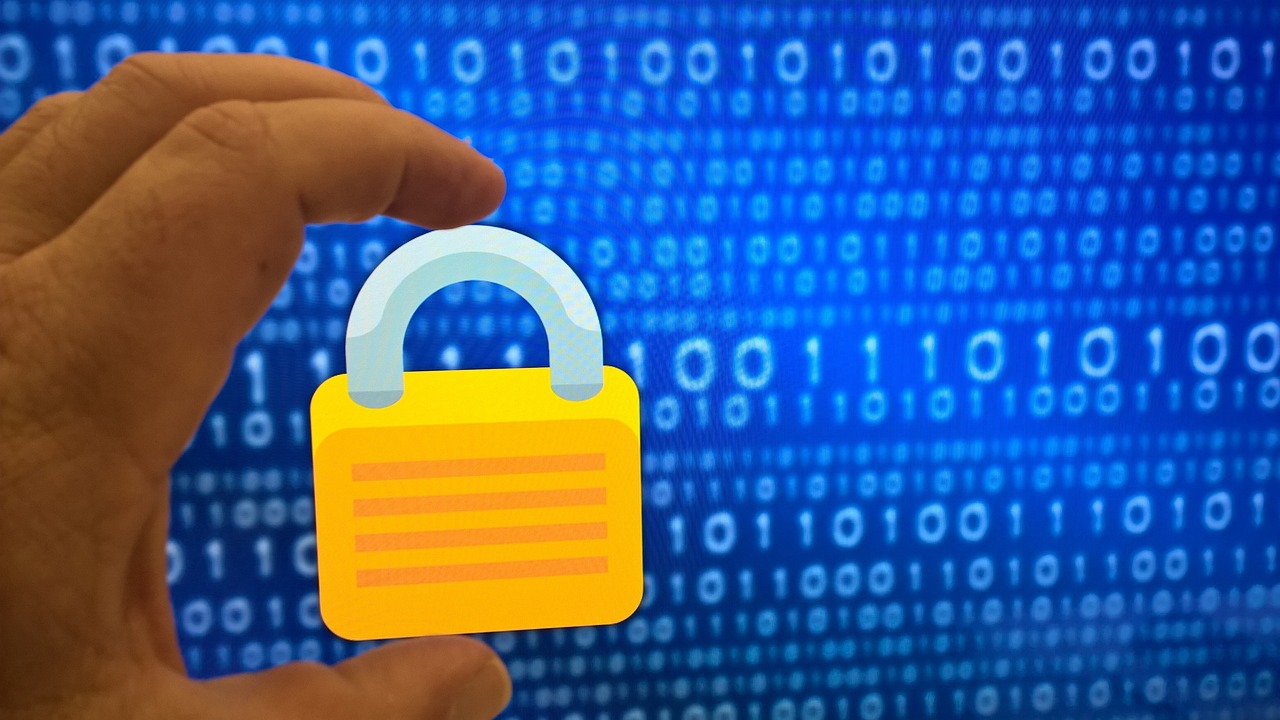
Window Security Solutions
When it comes to home security, windows often serve as the weakest link in your defense system. Many homeowners underestimate the vulnerability of their windows, but the truth is, they can be a prime target for intruders. By implementing effective window security solutions, you can significantly reduce the risk of a break-in and enjoy your vacation with peace of mind. So, what can you do to fortify your windows? Let's dive into some effective strategies!
First off, one of the simplest yet most effective measures is to install window locks. Many windows come with standard locks, but upgrading to more robust locking mechanisms can make a world of difference. Consider options like keyed locks or sash locks, which provide a higher level of security. You can also explore window pin locks that prevent the window from being opened more than a few inches, making it difficult for anyone to enter.
Another excellent solution is to reinforce your windows with security film. This transparent film is applied directly to the glass, making it much harder to break. In fact, security film can hold shattered glass in place, deterring potential intruders who might think twice before attempting to break in. Imagine a thief trying to smash your window only to find that it won’t break easily; that’s the kind of deterrent you want!
Additionally, consider installing window bars or grilles. While they may sound intimidating, modern designs can be quite stylish and can blend seamlessly with your home’s aesthetic. These physical barriers serve as a strong visual deterrent and can prevent unauthorized access even if a window is broken. If you're worried about aesthetics, look for options that can be easily removed or that are designed to be less obtrusive.
For those who want to take their security a step further, motion sensor lights placed near windows can also be effective. These lights can illuminate your home’s exterior when they detect movement, startling potential intruders and alerting you or your neighbors to suspicious activity. Pairing this with other security measures creates a robust defense that will keep your home safe.
To give you a clearer idea of how these solutions stack up against each other, here's a quick comparison:
| Window Security Solution | Effectiveness | Aesthetic Impact | Cost |
|---|---|---|---|
| Window Locks | High | Low | $$ |
| Security Film | Medium | High | $$ |
| Window Bars/Grilles | Very High | Medium | $$$ |
| Motion Sensor Lights | Medium | High | $$ |
In conclusion, securing your windows is a crucial part of keeping your home safe while you enjoy your time away. Whether you choose to install locks, apply security film, or add motion sensor lights, each of these solutions can contribute to a more secure environment. Remember, a well-protected home not only deters intruders but also gives you the freedom to relax and enjoy your vacation without worrying about your property.
Q: What is the best type of lock for my windows?
A: The best type of lock depends on your window style. Keyed locks and sash locks are generally very effective. For added security, consider window pin locks.
Q: How does security film work?
A: Security film is a strong, transparent layer that adheres to your window glass. It makes the glass more resistant to breakage, holding it together even if shattered.
Q: Are window bars safe?
A: Yes, window bars provide a strong physical barrier against intruders. Just ensure they can be easily removed from the inside in case of an emergency.
Q: Do motion sensor lights really deter burglars?
A: Yes, motion sensor lights can startle potential intruders and alert you or your neighbors to suspicious activity, making your home less appealing to burglars.

Utilizing Technology for Home Security
In today's fast-paced world, utilizing technology for home security is not just a luxury; it's a necessity. With the advancements in smart home devices, you can now monitor and protect your property like never before. Imagine being able to check on your home from anywhere in the world, all from the palm of your hand. Sounds great, right? Well, that's the power of modern technology!
One of the most effective tools at your disposal is security cameras. These devices can be placed strategically around your home to provide real-time monitoring. Whether you choose indoor or outdoor cameras, having a visual record of your property can be a significant deterrent for potential intruders. Many of these cameras come equipped with features like motion detection, night vision, and two-way audio, allowing you to interact with anyone who approaches your home. It's like having a virtual security guard watching over your property 24/7!
Additionally, consider investing in a comprehensive alarm system. An effective alarm system does more than just make noise; it can alert you and local authorities in case of a break-in. There are various options available, from simple systems that trigger a loud siren to more advanced setups that connect directly to emergency services. Some systems even allow you to monitor your home remotely through an app, giving you peace of mind while you’re away. Imagine being on a beach somewhere, sipping a cocktail, and knowing that your home is safe and sound because you have an alarm system keeping watch.
Moreover, integrating smart home technology can enhance your overall security. For instance, smart lighting systems can be programmed to simulate your presence at home. By setting lights to turn on and off at specific times, you can create the illusion that someone is always home, which can be a powerful deterrent against burglars. Additionally, smart doorbells with built-in cameras allow you to see who is at your door, even when you're not there. You can receive notifications on your phone and respond instantly, making it seem like you're right at the door, even when you're miles away.
Here's a quick comparison of some popular security technologies:
| Device Type | Features | Benefits |
|---|---|---|
| Security Cameras | Motion detection, night vision, remote access | Real-time monitoring, deterrent for intruders |
| Alarm Systems | 24/7 monitoring, emergency alerts, mobile access | Immediate response to break-ins, peace of mind |
| Smart Lighting | Programmable schedules, remote control | Simulates presence, enhances security |
| Smart Doorbells | Video feed, two-way audio, motion alerts | See and communicate with visitors remotely |
In conclusion, utilizing technology for home security not only provides protection but also offers convenience and peace of mind. By investing in these smart devices, you can ensure that your home is well-guarded, allowing you to focus on enjoying your vacation without the nagging worry of what might be happening back home. So, why wait? Start enhancing your home security today!
Q: How do security cameras deter burglars?
A: Security cameras serve as a visible deterrent. When potential intruders see a camera, they are less likely to attempt a break-in, knowing they are being recorded.
Q: Can I monitor my home security system remotely?
A: Yes! Many modern security systems allow you to monitor your home in real-time through a smartphone app, giving you peace of mind wherever you are.
Q: Are smart locks safe?
A: Smart locks can be very safe, especially if they use encryption and have additional features like two-factor authentication. Always choose reputable brands and keep your software updated.
Q: What should I do if my alarm goes off?
A: If your alarm goes off, check your security app for alerts. If it appears to be a false alarm, you can usually silence it remotely. If it seems legitimate, contact local authorities immediately.

Security Cameras
When it comes to protecting your home, are like having a vigilant guardian watching over your property 24/7. Imagine being able to check in on your home from anywhere in the world, all thanks to modern technology! Security cameras not only provide peace of mind but also serve as a powerful deterrent against potential intruders. The mere presence of a camera can make a burglar think twice before attempting to break in.
There are various types of security cameras available on the market, each designed to meet different needs. For instance, indoor cameras are great for monitoring the interior of your home, while outdoor cameras can withstand the elements and offer a broader view of your property. Additionally, wireless cameras eliminate the hassle of installation and allow for more flexible placement around your home.
One of the most significant advantages of security cameras is their ability to provide real-time monitoring. Many systems come equipped with live streaming features, allowing you to view footage directly on your smartphone or tablet. This means you can keep an eye on your home while lounging on a beach or exploring a new city. Furthermore, many cameras offer motion detection alerts, notifying you instantly if any unusual activity is detected.
Here’s a quick comparison of some popular types of security cameras:
| Camera Type | Features | Best For |
|---|---|---|
| Indoor Cameras | Two-way audio, night vision | Monitoring interiors |
| Outdoor Cameras | Weather-resistant, wide-angle view | Exterior surveillance |
| Wireless Cameras | Easy installation, mobile access | Flexible placement |
| Smart Cameras | AI detection, integration with smart home systems | Advanced monitoring |
Moreover, many security cameras now come with cloud storage options, which allow you to save and review footage at your convenience. This is particularly useful if an incident occurs, as you can easily access recorded footage to provide to law enforcement. In addition, some models offer features like facial recognition and smart alerts, enhancing their effectiveness in identifying potential threats.
In summary, investing in security cameras can significantly bolster your home security strategy. Not only do they provide real-time monitoring and peace of mind, but they also act as a strong deterrent against crime. So, before you set off on your next vacation, consider installing a reliable security camera system to keep your home safe and sound.
- How do I choose the right security camera for my home? Consider factors like indoor vs. outdoor use, resolution, and whether you want wired or wireless options.
- Can I access my security camera footage remotely? Yes, most modern security cameras offer mobile apps that allow you to view live footage and recorded videos from anywhere.
- Do security cameras record all the time? Many cameras have motion detection features, meaning they only record when they detect movement, saving storage space.
- Are security cameras easy to install? Wireless cameras are generally easier to install, while wired systems may require professional installation.
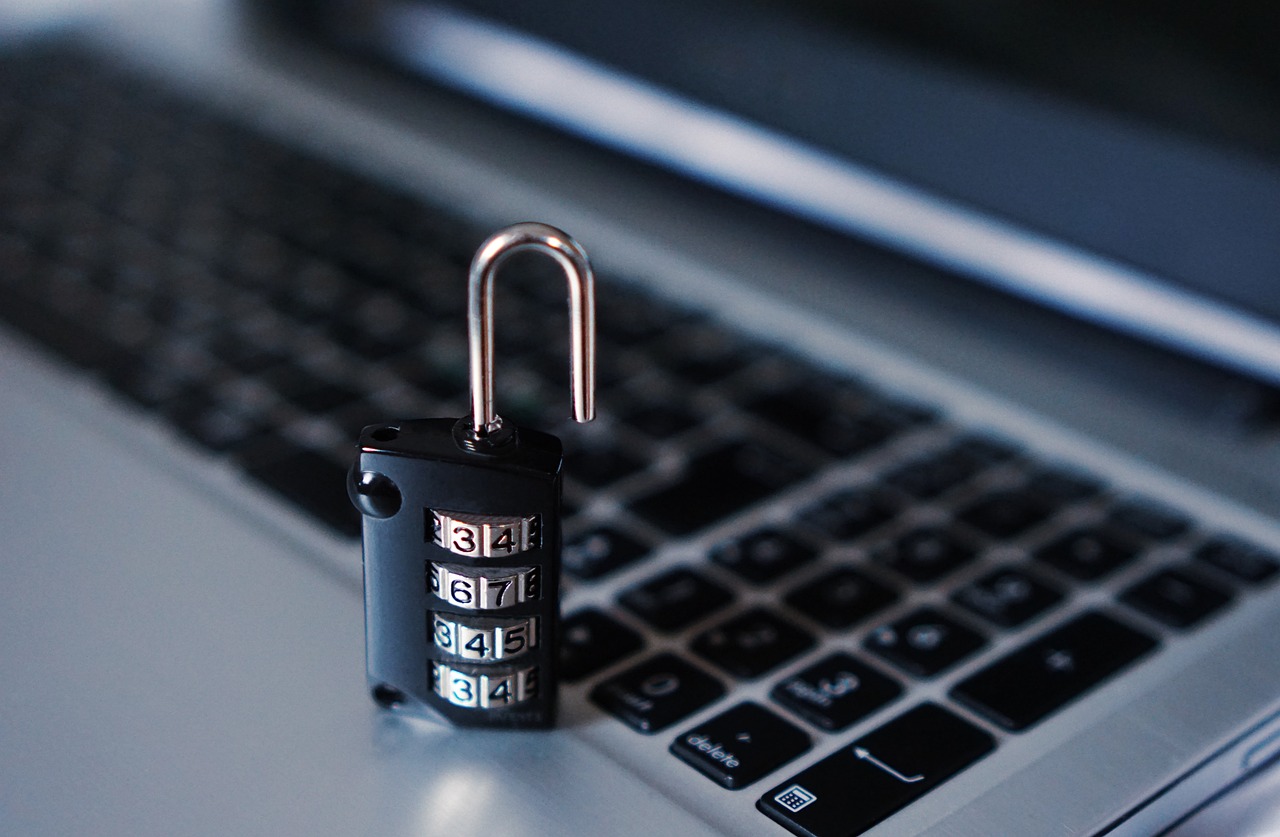
Alarm Systems
When it comes to safeguarding your home while you're off enjoying a well-deserved vacation, are your first line of defense. Imagine this: you're lounging on a sandy beach, sipping a cool drink, and the last thing you want to think about is whether your home is safe. An effective alarm system can alleviate those worries by providing real-time alerts and deterring potential intruders. But with so many options out there, how do you choose the right one for your needs?
Alarm systems come in various forms, each with unique features designed to protect your home. From traditional wired systems to modern wireless solutions, the choices can be overwhelming. Generally, alarm systems can be categorized into three main types:
- Monitored Systems: These systems are linked to a central monitoring station that alerts authorities in case of a break-in. This option provides peace of mind, knowing that help is just a call away.
- Unmonitored Systems: These alarms sound off when triggered but do not alert the police or monitoring service. While they can scare off intruders, they rely on you or neighbors to respond.
- Smart Alarm Systems: These cutting-edge systems integrate with your smartphone, allowing you to monitor your home from anywhere. With features like remote arming and disarming, you can keep tabs on your property with just a few taps on your screen.
One of the most significant advantages of installing an alarm system is the deterrent effect. Studies have shown that homes with visible security systems are less likely to be targeted by criminals. Think of it as a "keep out" sign for would-be burglars. Additionally, many insurance companies offer discounts on premiums for homes equipped with alarm systems, making this investment not just a safety measure but also a potential cost-saver.
When selecting an alarm system, consider factors such as installation ease, monitoring options, and compatibility with other smart home devices. For instance, if you already have smart cameras or door locks, you might want a system that integrates seamlessly with those devices. Furthermore, look for systems that offer mobile app support, so you can receive alerts and check your home's status from anywhere.
In conclusion, investing in a reliable alarm system is a smart move for anyone looking to secure their home while away. With the right system in place, you can focus on making memories during your vacation, knowing that your home is well-protected. So why wait? Start exploring your options today and give yourself the ultimate peace of mind!
Q: What should I look for in an alarm system?
A: Key features to consider include monitoring options (monitored vs. unmonitored), installation type (wired vs. wireless), and integration with smart home devices.
Q: Are smart alarm systems worth the investment?
A: Absolutely! Smart alarm systems offer convenience, flexibility, and real-time monitoring, making them a worthwhile investment for many homeowners.
Q: How do I maintain my alarm system?
A: Regularly test your system, replace batteries as needed, and ensure that your monitoring service is up to date for optimal performance.
Q: Can I install an alarm system myself?
A: Many modern alarm systems are designed for DIY installation, but if you're unsure, consider hiring a professional to ensure everything is set up correctly.
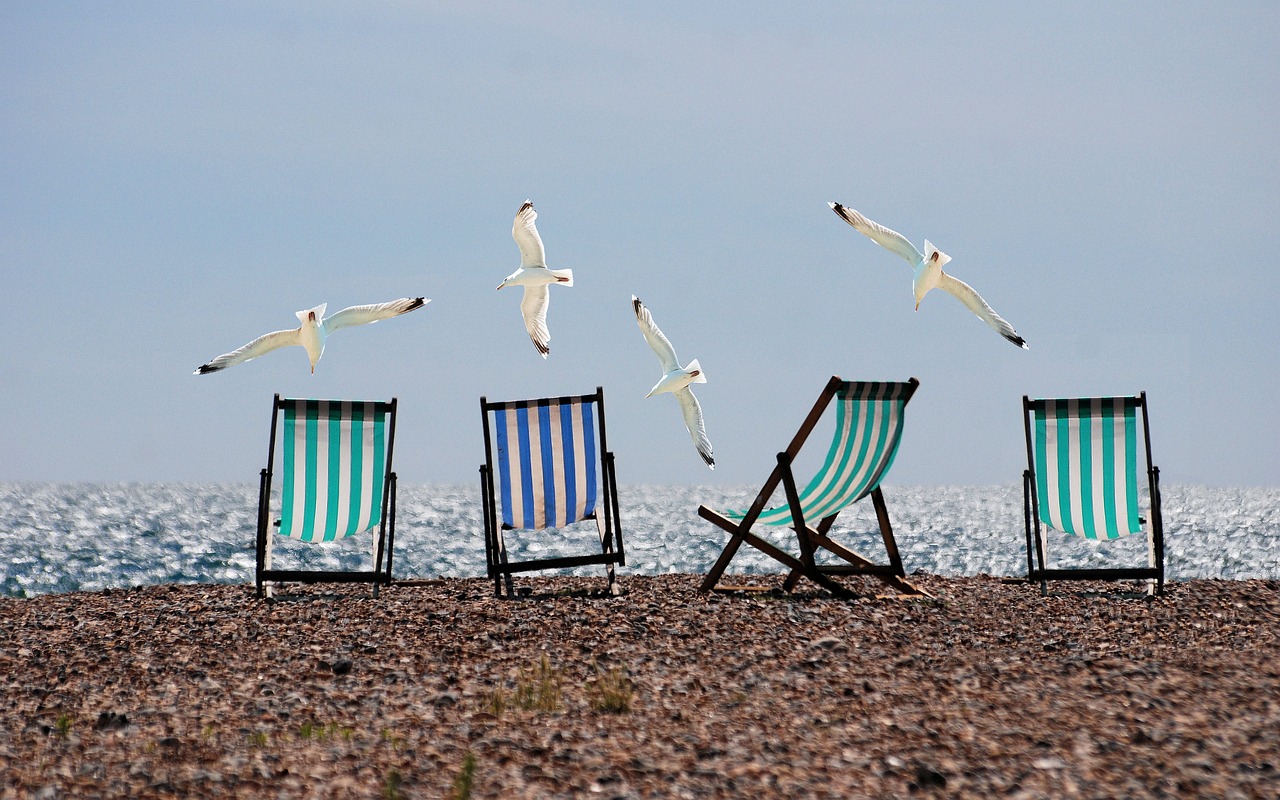
Informing Neighbors and Trusted Friends
When it comes to securing your home while you're off enjoying a well-deserved vacation, one of the best strategies is to inform your neighbors and trusted friends. Think of them as your home’s watchful guardians, ready to keep an eye on things in your absence. It’s not just about having someone to collect your mail or water your plants; it’s about creating a network of support that can deter potential intruders and provide peace of mind. After all, what’s better than knowing that someone you trust is looking out for your property while you’re away?
Before you head out, take a moment to have a chat with your neighbors. Let them know your vacation dates and ask if they would be willing to keep an eye on your home. You could even offer to return the favor when they go on trips. This mutual arrangement not only strengthens community ties but also enhances security. If you have a trusted friend who lives nearby, consider asking them to check in on your home regularly. Their presence can serve as a strong deterrent to would-be burglars who might think twice about breaking into a house that someone is actively monitoring.
Moreover, it’s a good idea to share your contact information with your neighbors and friends. In case of any unusual activity, they should be able to reach you quickly. You can even provide them with a list of emergency contacts, including your local police department and a trusted family member. This way, they can act swiftly if something seems amiss. Here’s a quick example of what to include in your emergency contact list:
| Contact Type | Name | Phone Number |
|---|---|---|
| Local Police | City Police Department | (123) 456-7890 |
| Trusted Family Member | John Doe | (987) 654-3210 |
| Neighbor | Jane Smith | (555) 123-4567 |
In addition to communicating with those close to you, consider discussing your vacation plans with any neighborhood watch programs in your area. These programs are designed to enhance community safety, and your involvement can help keep your neighborhood secure. By participating, you not only contribute to a safer environment but also gain additional eyes on your property while you’re away.
Finally, don't forget to ask your neighbors to park their cars in your driveway or vice versa. A car parked in your driveway can give the illusion that someone is home, which can be a strong deterrent for potential intruders. Remember, the more proactive you are about informing your neighbors and friends, the less you’ll have to worry about your home while you’re off creating memories on your vacation!
Q: Should I inform all my neighbors about my vacation?
A: It’s a good idea to inform neighbors you trust, especially those who are close by. This way, they can keep an eye on your home without feeling overwhelmed.
Q: What if something happens while I'm away?
A: Make sure your neighbors have your emergency contact information, so they can reach you or the authorities if needed.
Q: Can I ask my neighbor to collect my mail?
A: Absolutely! Asking a neighbor to collect your mail is a great way to prevent your mailbox from overflowing, which can signal to intruders that you’re not home.
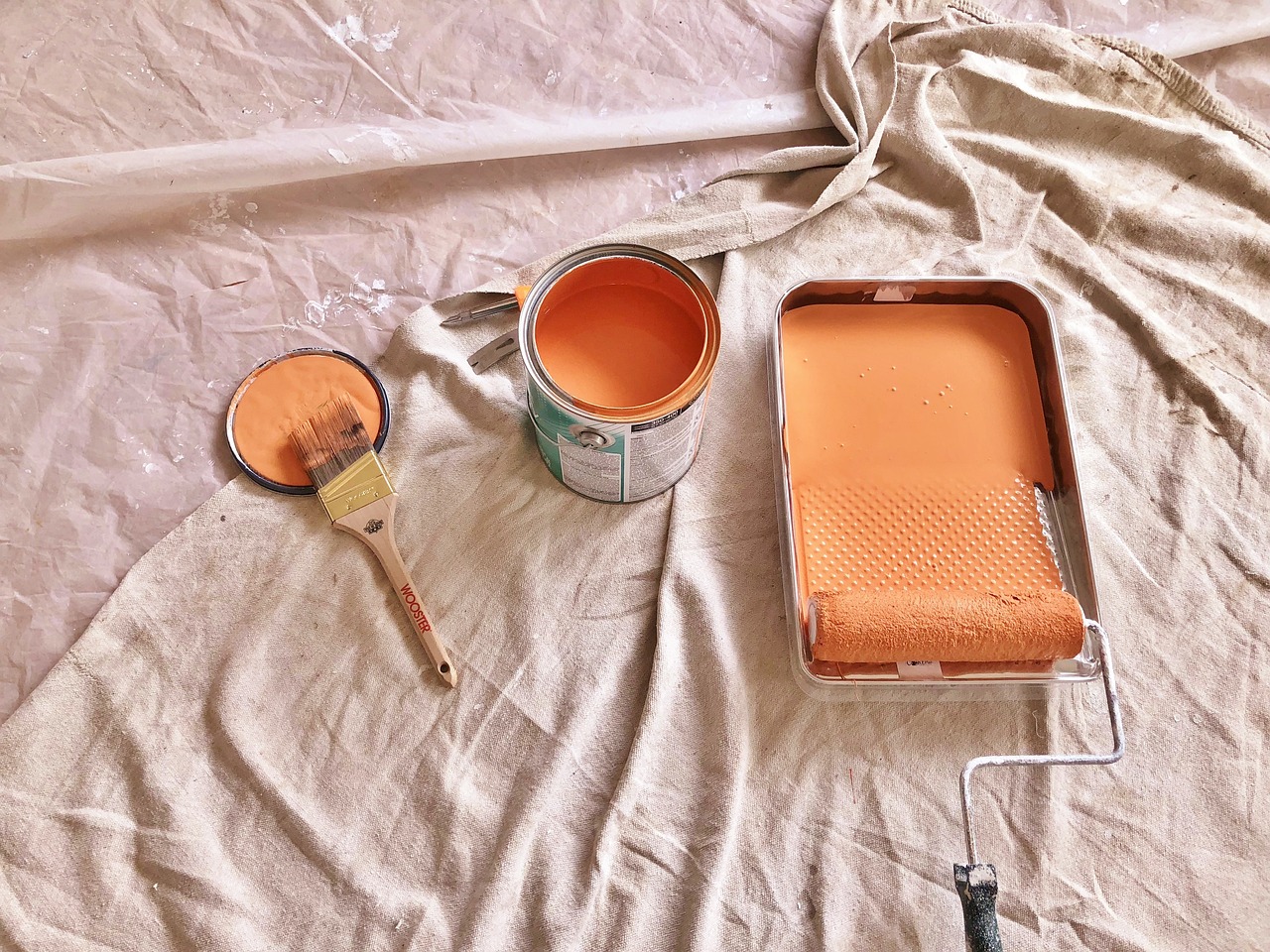
House Sitting Arrangements
When it comes to ensuring your home remains secure during your vacation, can be your secret weapon. Imagine having a trusted friend or neighbor keeping an eye on your property while you bask in the sun or explore new cities. Not only does this provide peace of mind, but it also acts as a significant deterrent to potential intruders who may think twice about targeting a home that appears occupied.
Choosing the right person for house sitting is crucial. You want someone reliable, responsible, and familiar with your home. This could be a close friend, a neighbor you trust, or even a professional house sitter. When discussing the arrangement, it’s a good idea to outline their responsibilities clearly. Here are some essential tasks you might want them to handle:
- Collecting mail and packages to prevent a buildup that signals no one is home.
- Watering plants to keep your greenery thriving and give an impression of regular activity.
- Taking out the trash to maintain your home’s appearance.
- Checking on the security system and ensuring doors and windows are locked.
In addition to these chores, it's also beneficial to provide your house sitter with a list of emergency contacts. This list should include:
| Contact Type | Name | Phone Number |
|---|---|---|
| Emergency Services | Local Police | (Your Local Police Number) |
| Emergency Services | Fire Department | (Your Local Fire Department Number) |
| Trusted Neighbor | (Neighbor's Name) | (Neighbor's Phone Number) |
| Family Member | (Family Member's Name) | (Family Member's Phone Number) |
By having this information readily available, your house sitter can act swiftly in case of any emergencies, whether it’s a minor issue like a leaky faucet or something more urgent. Moreover, make sure to brief them on any quirks or unique features of your home. For example, if your security system has a specific way to be activated or deactivated, or if there’s a particular light switch that controls the outdoor lights, sharing these details can prevent confusion and ensure everything runs smoothly.
In essence, house sitting arrangements not only protect your home but also create a sense of community. You’re not just asking someone to look after your property; you’re building trust and fostering relationships. So, next time you plan a getaway, consider enlisting a house sitter. It’s a simple yet effective way to enjoy your vacation without the nagging worry of what might be happening back home.
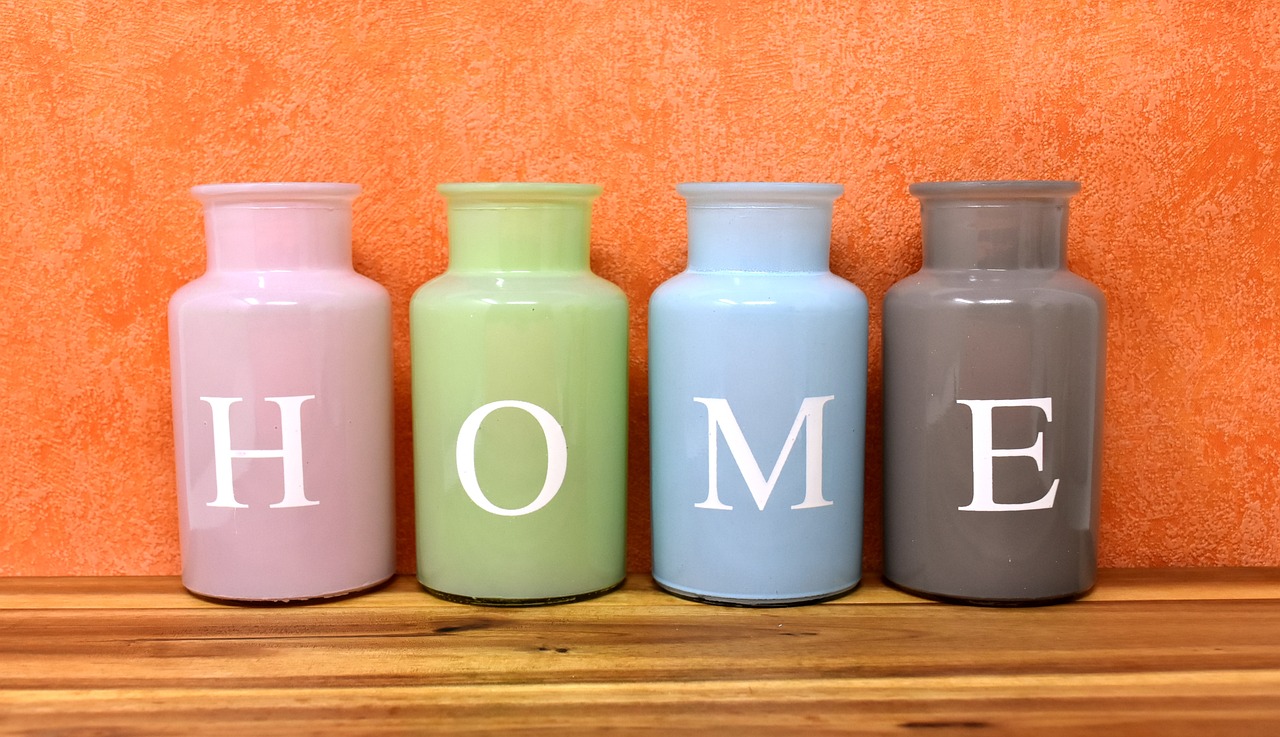
Neighborhood Watch Programs
When it comes to enhancing the security of your community, serve as a powerful tool. These programs foster a sense of community and encourage residents to look out for one another, creating a safer environment for everyone. Imagine a scenario where neighbors band together, sharing information and keeping an eye on one another's properties; it’s like having a protective shield around your home. But how do these programs work, and how can you get involved?
At their core, neighborhood watch programs are all about communication and vigilance. They empower residents to report suspicious activities, share crime alerts, and organize community patrols. To get started, you might want to consider the following key elements:
- Establish a Communication Network: Use tools like group chats or social media platforms to keep everyone informed.
- Regular Meetings: Hold meetings to discuss safety concerns, share updates, and plan community events.
- Engage Local Law Enforcement: Collaborate with police to receive training and support, making your program more effective.
Moreover, the effectiveness of neighborhood watch programs can be seen in the statistics. According to various studies, communities with active neighborhood watch initiatives often experience a significant drop in crime rates. For instance, a community that implements regular patrols and communication about suspicious activities can reduce burglary rates by up to 30%. This drastic decline is not just a number; it translates to peace of mind for families who can rest easy, knowing their neighborhood is looking out for them.
Another essential aspect of these programs is fostering relationships among neighbors. It’s not just about crime prevention; it’s about building a community. When residents know each other, they are more likely to communicate effectively and respond quickly to any potential threats. Think of it as a neighborhood family; when one member is in trouble, the others rally to help. This camaraderie can also lead to fun community events that strengthen bonds, such as block parties or safety workshops.
So, if you’re considering starting a neighborhood watch program or joining an existing one, remember that the key lies in participation and communication. The more involved residents are, the more effective the program will be. Plus, it’s a fantastic opportunity to meet your neighbors and build lasting friendships. In the end, a united community is a safe community!
Q: How do I start a neighborhood watch program?
A: To start a neighborhood watch program, gather interested neighbors, contact your local law enforcement for guidance, and establish a communication system to keep everyone informed.
Q: What should I do if I notice suspicious activity?
A: If you notice suspicious activity, document it and report it to local law enforcement immediately. Do not confront the individuals yourself.
Q: Are neighborhood watch programs effective?
A: Yes, studies show that active neighborhood watch programs can significantly reduce crime rates, creating a safer environment for residents.
Q: How often should we meet?
A: Regular meetings, such as monthly or quarterly, are recommended to discuss safety concerns and updates. However, you can adjust the frequency based on your community's needs.
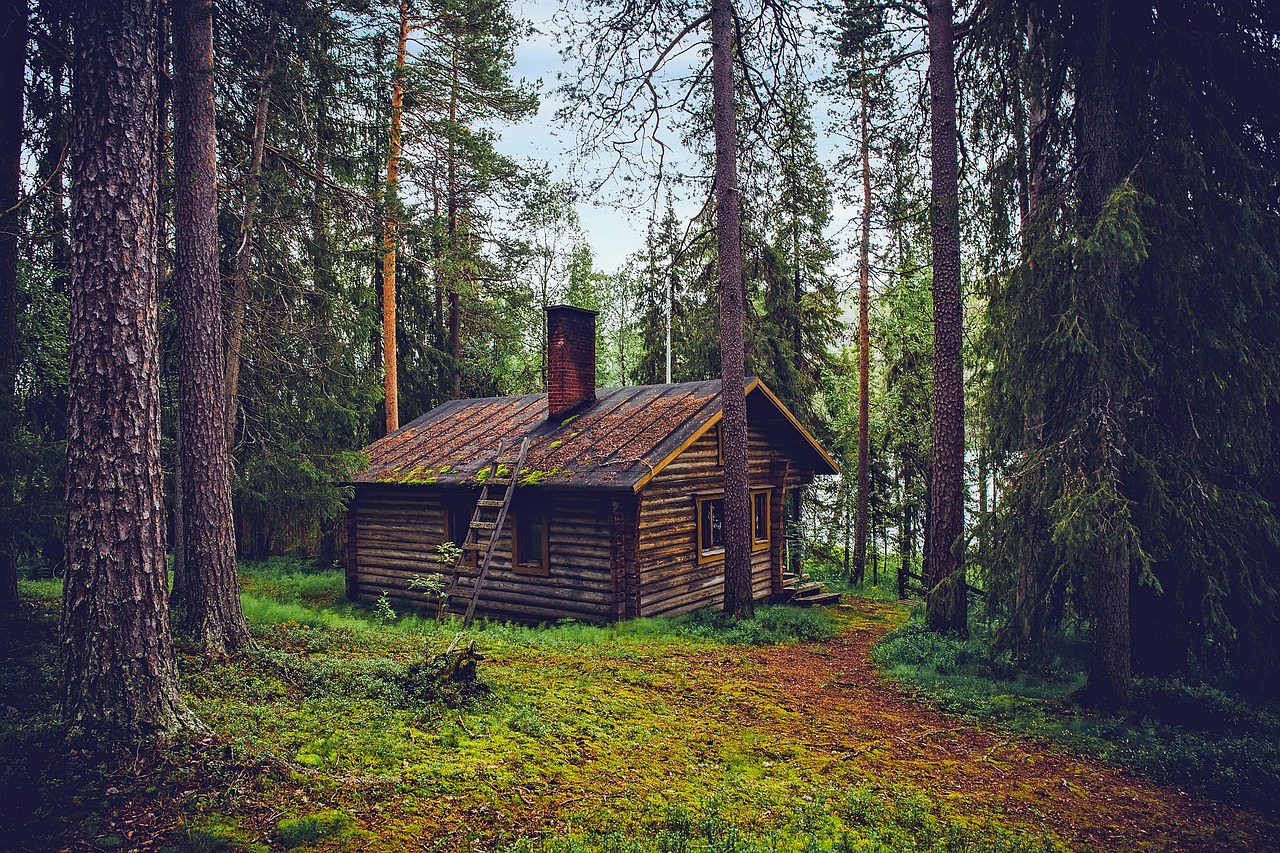
Final Checks Before Departure
As you prepare to embark on your exciting vacation, it's crucial to ensure that your home is safe and secure. After all, the last thing you want is to worry about your property while you're soaking up the sun or exploring new places. Conducting a thorough final check before you leave can provide you with peace of mind and help you enjoy your trip to the fullest. So, what should you focus on during this essential last-minute checklist?
Start by reviewing all entry points in your home. Ensure that all doors and windows are securely locked. It may sound simple, but sometimes the smallest details can be overlooked in the hustle and bustle of packing. Additionally, consider reinforcing these entry points with additional security measures, like window locks or door jammers, to deter any potential intruders.
Next, don't forget to take a moment to power down your appliances. Unplugging unnecessary devices not only saves energy but can also prevent potential hazards, such as electrical fires. Make a mental note to check the following:
- Kitchen appliances (toaster, coffee maker, etc.)
- Entertainment systems (TV, gaming consoles)
- Computers and chargers
In addition to securing your home, have a list of emergency contacts readily available. This list should include trusted neighbors, family members, or friends who can step in if something goes awry. It's essential to have someone you can rely on in case of emergencies, such as a power outage or a plumbing issue. You might even consider sharing your itinerary with them, so they know when you’ll be away and can keep an eye on things.
Lastly, take a few moments to inform your neighbors about your vacation plans. A simple conversation can go a long way in enhancing your home’s security. Neighbors can keep an eye on your property and report any suspicious activity to the authorities. Plus, it fosters a sense of community that can be incredibly beneficial in times of need.
By following these final checks, you can rest assured that your home is secure, allowing you to focus on making unforgettable memories during your vacation. So, as you zip up that suitcase and head out the door, remember that a little preparation goes a long way in ensuring your peace of mind while you’re away.
Q: What should I do if I have a long vacation planned?
A: For extended vacations, consider hiring a house sitter or asking a trusted friend to check on your home regularly. This added layer of security can help deter potential intruders.
Q: Are smart home devices worth the investment?
A: Absolutely! Smart home devices like security cameras and smart locks can provide real-time monitoring and alerts, giving you peace of mind while you're away.
Q: How can I ensure my home looks lived in while I'm on vacation?
A: To create the illusion that someone is home, you can use timers for your lights, have your mail held or picked up by a neighbor, and even park a car in your driveway if possible.
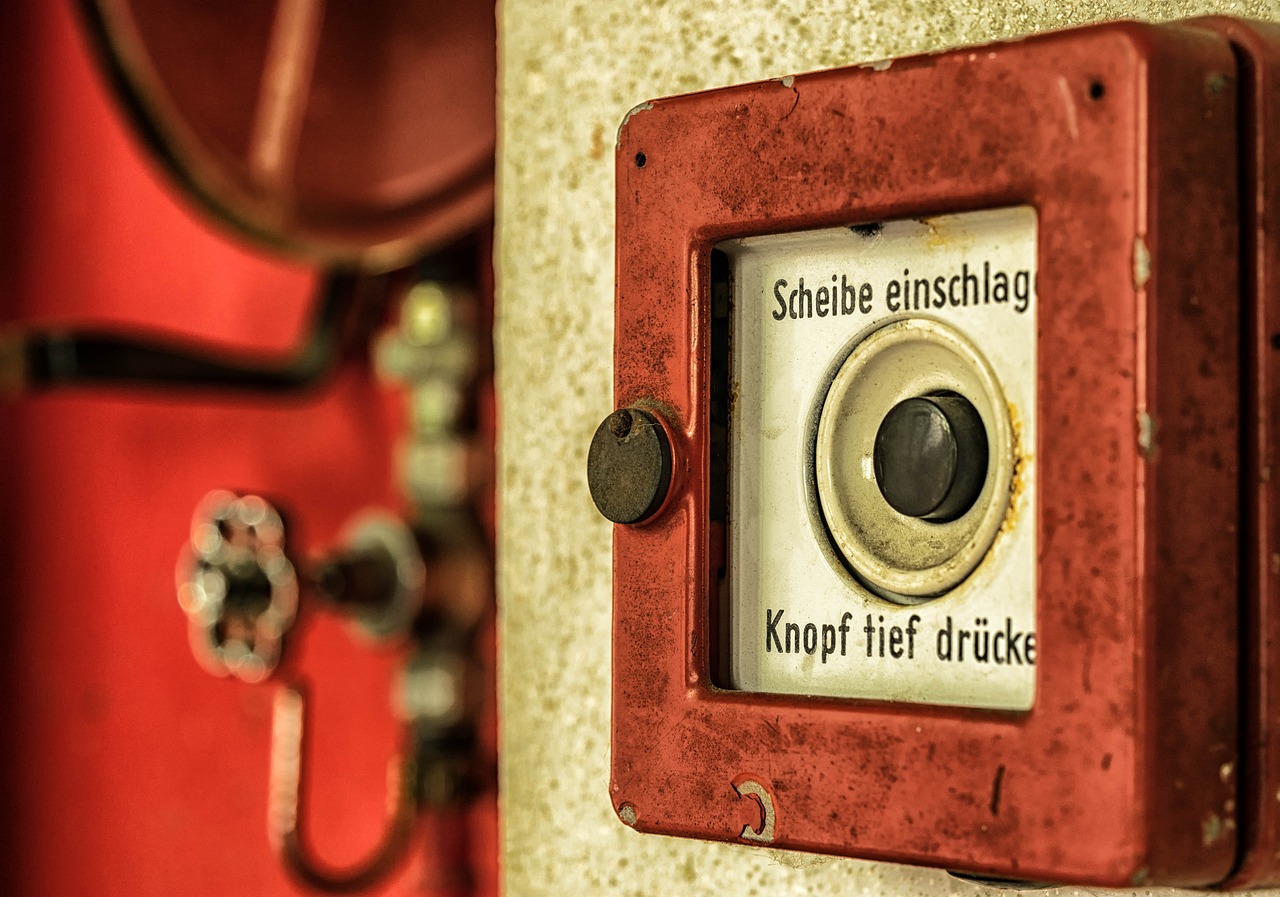
Emergency Contacts
When preparing for a vacation, one of the most crucial yet often overlooked steps is ensuring that you have a comprehensive list of emergency contacts readily available. Think of it as your safety net; if anything goes awry while you're away, you want to ensure that you can reach out to the right people quickly. This list should include not just family and friends, but also local authorities, service providers, and anyone who may need to be contacted in case of an emergency. Here’s a quick breakdown of who you should consider including:
- Family Members: Always have the contact details of immediate family members, as they can act quickly in case of an emergency.
- Close Friends: Friends who live nearby can check on your home if needed.
- Neighbors: Having your neighbor's contact information ensures that they can alert you if they notice anything suspicious.
- Local Authorities: Keep the contact details of the local police and fire department handy.
- Service Providers: If you have a lawn service or a cleaning service, include their contact information to manage any unexpected issues.
Additionally, it's wise to share your travel itinerary with a trusted friend or family member. This way, they will know your whereabouts and can act accordingly if something seems off back home. You might even want to consider using a secure app or service to store these contacts digitally, ensuring they’re accessible from anywhere.
In case of emergencies, having a list of contacts can save precious time. Imagine being on a beach in Bali and realizing that your home alarm has been triggered. You wouldn’t want to waste time scrambling to find phone numbers or searching through your email for contacts. Instead, with your emergency contact list at hand, you can quickly reach out to your neighbor or the local police, ensuring your home is secure while you enjoy your vacation.
Lastly, don't forget to include any special instructions for your contacts. For instance, let them know how to access your home in case they need to check on things or who to call if something needs immediate attention. This proactive approach can give you peace of mind, allowing you to focus on making memories rather than worrying about what might be happening back home.
Q: What should I do if I can't reach any of my emergency contacts?
A: It's essential to have multiple contacts listed. If you can't reach one person, try the next on your list. Also, consider using messaging apps that allow for group chats, so you can alert multiple people at once.
Q: How often should I update my emergency contact list?
A: You should review and update your emergency contacts at least once a year or whenever there are significant changes in your relationships or living situation.
Q: Should I keep a physical copy of my emergency contacts?
A: Yes, it's a good idea to have a physical copy in case your phone is lost or dead. Keep it in a safe but accessible place at home.

Powering Down Appliances
As you prepare for your much-anticipated vacation, one crucial step often gets overlooked: powering down your appliances. It might seem trivial, but taking a moment to unplug certain devices can save you from potential hazards and reduce your energy bill while you're away. Imagine returning from a blissful getaway only to find that a forgotten iron or a malfunctioning appliance caused chaos in your home. By being proactive, you can avoid such nightmares and enjoy your trip with peace of mind.
First and foremost, it's important to identify which appliances should be unplugged before you head out the door. Common culprits include:
- Kitchen Appliances: Toasters, coffee makers, and microwaves can be unplugged to prevent accidental activation or electrical issues.
- Heating Devices: Space heaters and irons pose a fire risk if left plugged in, so it’s best to disconnect them.
- Electronics: TVs, gaming consoles, and computers can be unplugged to protect them from power surges.
Unplugging these devices not only minimizes the risk of electrical fires but also conserves energy. According to the U.S. Department of Energy, appliances that are left plugged in can still draw power, even when they’re turned off. This phenomenon, known as "phantom load," can account for a significant portion of your electricity bill. By unplugging, you can contribute to both your wallet and the environment.
Moreover, it’s wise to check for any potential hazards before you leave. Make sure to inspect cords for fraying or damage, as these can lead to electrical fires if left unattended. Additionally, consider using a power strip with a switch for multiple devices, making it easier to power down several appliances at once.
To wrap it all up, powering down your appliances is a simple yet effective way to enhance your home’s safety while you’re away. It’s a small task that can yield big benefits, allowing you to focus on making memories rather than worrying about what you left behind. So, as you finalize your packing, don’t forget to check off that last-minute task of unplugging!
Q: What appliances should I unplug before leaving for vacation?
A: It's advisable to unplug kitchen appliances (like toasters and coffee makers), heating devices (such as space heaters and irons), and electronics (including TVs and computers) to prevent accidents and save energy.
Q: Will unplugging appliances really save me money?
A: Yes! Unplugging appliances helps eliminate "phantom loads," which can contribute to your electricity bill even when devices are turned off. This simple step can lead to noticeable savings.
Q: Are there any appliances that I should keep plugged in?
A: Essential appliances like refrigerators and freezers should remain plugged in to preserve food. Additionally, security systems and smart home devices should also stay connected for monitoring purposes.
Q: How can I ensure my home is safe while I’m away?
A: In addition to unplugging appliances, consider installing security cameras, setting up an alarm system, and arranging for a trusted friend or neighbor to check on your home during your absence.
Frequently Asked Questions
- What should I do to prepare my home before leaving for vacation?
Preparing your home starts with a thorough checklist. Make sure to secure all entry points, set timers for lights, and unplug unnecessary appliances. Additionally, inform a trusted neighbor about your absence so they can keep an eye on your property.
- How can I secure my doors and windows effectively?
To secure doors, consider upgrading to high-quality deadbolts or smart locks. For windows, install security film or window locks. Don't forget to check that all windows are closed and locked before you leave!
- Are smart locks worth the investment?
Absolutely! Smart locks provide enhanced security features, such as remote access and notifications. This means you can monitor your home from anywhere, giving you peace of mind while you enjoy your vacation.
- What types of security cameras should I install?
Look for cameras with high-definition video, night vision, and motion detection. Indoor and outdoor options are available, and some even offer cloud storage for footage, making them a great deterrent against potential intruders.
- How can I involve my neighbors in my home security plan?
Communicate your vacation plans with your neighbors. You can ask them to check your mail, park in your driveway occasionally, or simply keep an eye on your property while you're away. A neighborhood watch program can also enhance community safety!
- What should I include in my emergency contact list?
Your emergency contact list should include trusted friends, family members, and local authorities. Make sure to have contact numbers for your alarm company, a nearby friend, and any local services you might need while away.
- Is it necessary to power down appliances before leaving?
Yes, powering down appliances can prevent potential hazards like electrical fires. Unplugging devices like toasters, irons, and any non-essential electronics is a smart move for safety while you're on vacation.

